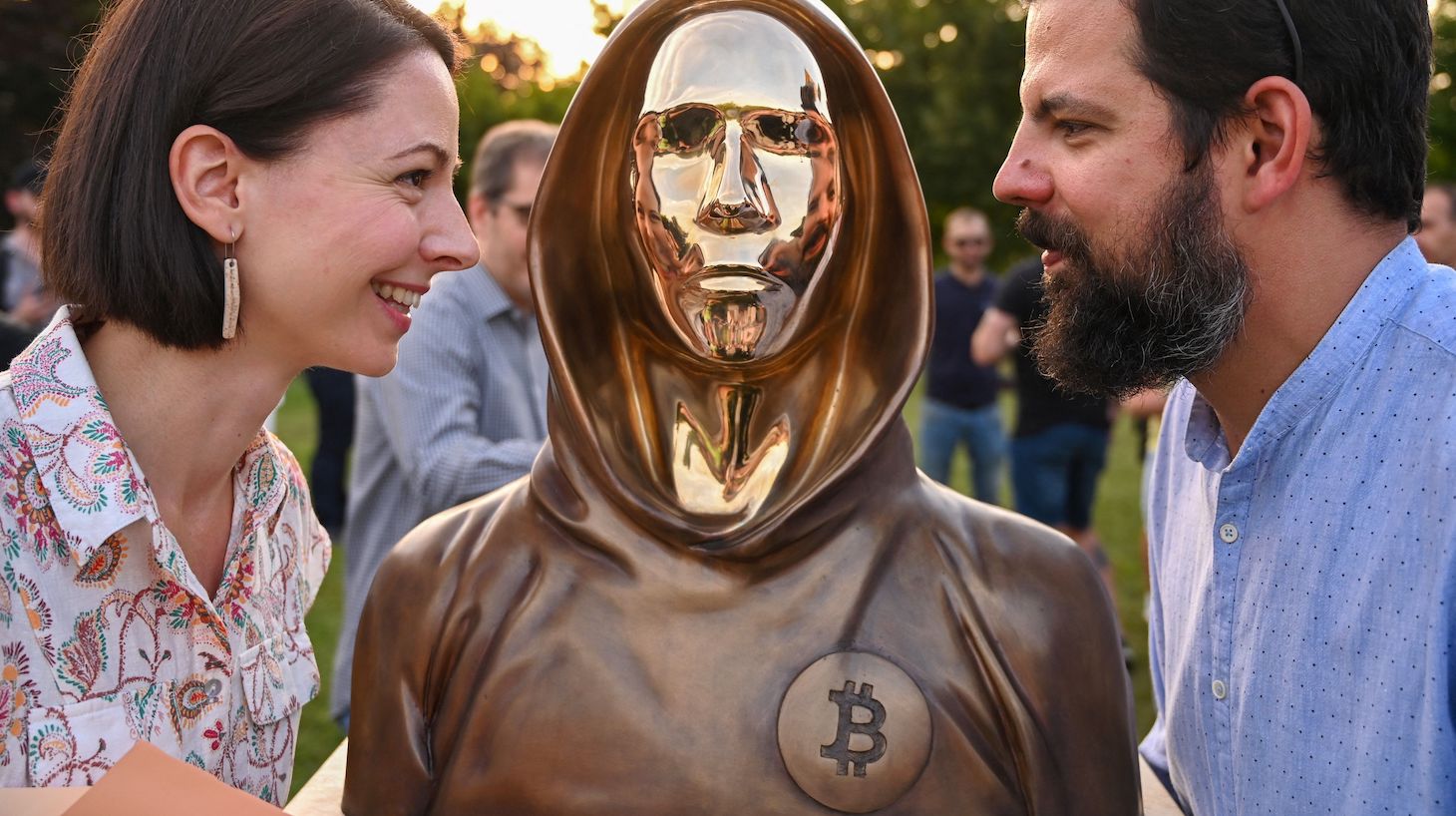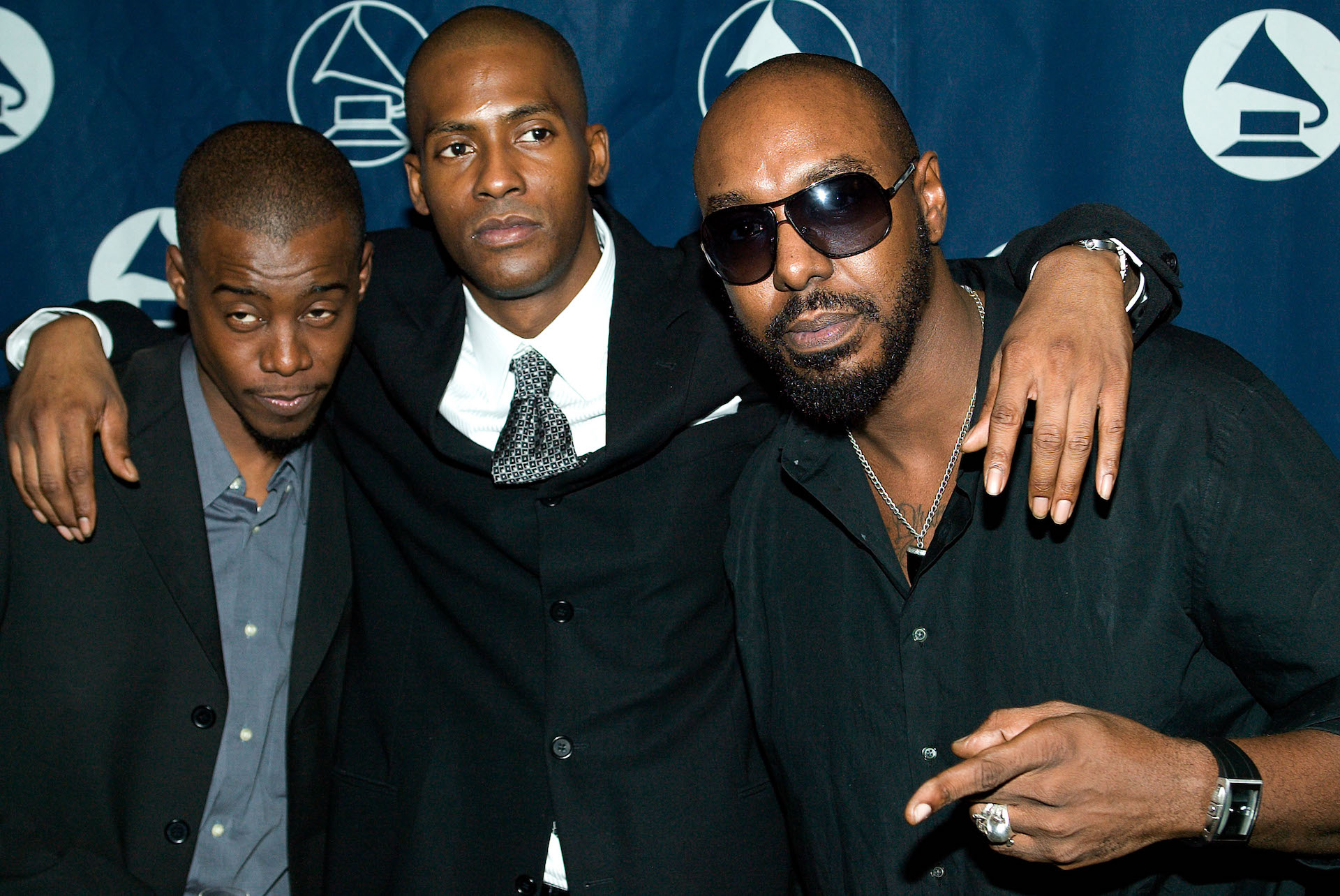This Is All Exactly What It Looks Like
11:39 AM EDT on September 22, 2021

There are the many liberative and exciting things that cryptocurrency might someday be and be used for, and then there is what cryptocurrency currently is, and how it actually gets used. Neither, strictly speaking, is anything that a normal person would really need to know or care about unless that normal person is the victim of a ransomware scam, or wants to buy drugs on the internet, or needs to discreetly send $250,000 to Roger Stone. For now, this is what it is: something that's absolutely real, but also abstracted and howlingly sketchy even relative to other speculative investment vehicles and obscure even when compared to the other memetic fads that our moment's reigning cretins tend to favor. The discourse around it is absolutely catastrophic, just disastrously obnoxious and dishonest and stilted at every turn, but that is generally true when it comes to conversations about money.
It is not unreasonable to be suspicious of this, both because of who is making the argument and how they are making it. Cryptocurrency, at least as it is sold by its most fervent adherents—the most prominent of those are men already famous for being rich, with a greasy substrate of rise-and-grind influencer types pumping and dumping and posting and posting and posting away just beneath—is rhetorically much more ambitious than the previous innovations that promised to Change The World for the better. Another reason for skepticism is that those previous innovations, when pitched by this type of person, all quickly wound up resolving to abetting ever bleaker new frontiers of serf labor, or expediting and optimizing the process through which aspiring genocidaires around the world get their social media posts in front of the most receptive possible audiences.
But also there is just the reality of how and what cryptocurrency actually is, which is, as SEC chair Gary Gensler said last week, "a highly speculative asset class." When the Biden Administration tentatively moved to tax and regulate cryptocurrency transactions, Treasury Secretary Janet Yellen explained the decision by saying, "To the extent [cryptocurrency] is used, I fear it’s often for illicit finance. It’s an extremely inefficient way of conducting transactions, and the amount of energy that’s consumed in processing those transactions is staggering." Advocates' response to this series of basically true observations is less a rebuttal than a blithe counterproposal to the effect that 1) none of that matters and also is all being fixed, and 2) the new money will bring about world peace so honestly how dare you.
#Bitcoin will unite a deeply divided country.
— jack⚡️ (@jack) August 9, 2021
(and eventually: world)
It is very easy to believe that the apostles of cryptocurrency do not really aspire to the liberation they so deliriously tout. Sure, it may be that they sincerely would like to replace the money they already have with a new type of currency, which they will also have, that is truly global and fluid and free in the way that national currencies inherently are not, and whose value might—when the current janky, carbon-chugging methods of production run their course—be legible and stable in a way that national currencies are not. But it is clear that the energy and the juice is more thoroughly in the speculative moment. The high temperature of the conversation gives away what's behind it; the insistence that cryptocurrency is a boon for all of humanity quickly collapses into the assertion that it will become one; the ostensible market science of it reveals itself pretty quickly first as libertarian scientism, and then just as plain sweaty magical thinking.
#Bitcoin can cancel cancel culture
— Cameron Winklevoss (@cameron) September 20, 2021
The hucksterish utopian rhetoric and blustering ambient scuzz of the broader cryptocurrency thing as it exists in this moment—the clammy slew of posturing experts, the open mendacity and barely concealed rube-running bad faith, the actual criminality and simple goonery that define its day-to-day—do the idea at the center of it no favors, but that is, more or less, the thing that always happens to any idea once people get ahold of it. Again, this is something that most people understand without really understanding how they understand it. At some point, when you are being lied to all the time and everywhere, you just know when it's happening.
With that in mind, it seems safest to look at the various characters on the grind here and assume that they want what they usually want, which is wealth without end or accountability or excuse, and something fun to play with, and also to get over on someone else. There's something heartbreakingly cretinous about it—they just invented money, again—but the more interesting questions have to do with who buys, and who sells.
"In our quarterback room, for the last 10 months, crypto has been the main conversation on our breaks between studying football plays," Tom Brady told Decrypt.to back in June. He had just announced his partnership with FTX, a crypto platform that was "founded with the goal of donating to the world's most effective charities." The platform's page reveals that the FTX Foundation has given away more than $3.7 million to charities, including $200,000 to the Phil and Amy Mickelson Foundation, and $50,000 to something identified only as "Bryson DeChambeau charity." The rock climber Alex Honnold's Honnold Foundation, charity organizations aligned with Aaron Rodgers and Barack Obama, and the TB12 Foundation have also received money. All of these are charities, albeit ones associated with famous rich people. More to the point, though, it's nothing really new. It's money going where it goes.
Alright the laser eyes didn’t work. Anyone have any ideas? https://t.co/43WyShRxr2
— Tom Brady (@TomBrady) June 28, 2021
It is not weird that Brady would wind up a Crypto Guy. It is also not strange that Steph Curry would get into NFT's—"speculative investments," as the writer W. David Marx wrote, "aspiring to be anything other than just speculative investments"—or that any number of lesser lights in various sports would try to "get closer to their fans" by selling them virtual tokens, or just talk themselves into buying Bitcoin's various dips. It is entirely normal, because these are all rich people, and this is all very much a Rich People Thing. It is a status symbol and, as a Rich Person Thing, it is necessarily something that non-rich people are most likely to engage with as a scam being perpetrated against them by people who do not think very much of or about them. Whatever cryptocurrency might someday be For All Mankind, it is most urgently and avidly in this moment something that people tell weird lies about in hopes of getting richer. Sometimes this is an influencer getting over on their followers in a low-effort pump and dump; sometimes it involves duping CNBC and Reuters with a fake press release; sometimes it's whatever the hell is happening in El Salvador, where a sketchy state-sponsored crypto gambit flopped upon implementation and brought protestors into the streets.
Consider a rich person who is rich in part because they have behaved as if laws are vestigial/fake, and who generally behaves like an especially incurious version of Dr. Manhattan vis-a-vis their engagement with the rest of the human race. You will probably not have to think very hard, here. These people are all around us, and they are in charge in ways that the state will not (because these people are so rich and influence is so cheap) or cannot (because the state's capacity to do things has been pushed into atrophy, in a more or less bipartisan way, for generations) do anything about. This person is getting out of a helicopter that they own, or off some kind of limited-edition hoverboard, to tell you about something that they say is going to make your life better and lift up the downtrodden and bring humanity as a whole closer together and do a bunch of other things they've transparently never cared a fucking whit about. These people have said these things before, and the results were a virtual public square festooned with ads and surveilled down to the pixel, or a button on your phone that makes someone bring you lunch. This time it is money, but new.
NEW: First look at Spike Lee's Bitcoin commercial
— Yano (@JasonYanowitz) July 14, 2021
“Old money is not going to pick us up – it pushes us down, exploits, and systematically oppresses. The digital rebellion is here. Old money is OUT, new money is IN." pic.twitter.com/eD1nCenXBX
"Old money is not going to pick us up—it pushes us down, exploits, and systematically oppresses," Spike Lee enthuses in a commercial he made for a Bitcoin ATM concern. "The digital rebellion is here. Old money is out, new money is in." The new stuff is like Money Classic, in that you can use it to get stuff—a note here: cryptocurrency is not actually like this yet—but also it's a force for good, now. The people who already have all of the old kind of money don't yet have all of the new kind, which it is strongly implied if never quite asserted means that you can get some of it instead.
It is generally worrying news when rich people start talking loudly about revolution. But anyone can recognize the two tiers of the grift. There is the invitation to join an expert elite and get the same incredible deal they're getting, which is a familiar selling point, and then above that there is that elite itself, the whales and whale-aspirants who either believe that they're in charge or suspect that they're knowledgeable enough to bail before the bottom falls out. There are the people who will know to dump when the pumping stops, and those who won't. The most obvious aspirational aspect of all this is the chance to get rich, but there is also a strong associational benefit to pulling yourself up out of the broader starving chaos of hopeless marks and into this ever-feasting community of People Who Know.
In its particulars, none of this is all that new or honestly all that interesting. But there is something about the specific churn and grift of it that seems to rhyme with what's most discordant in this broader moment. Fatuous rich people making themselves into oracles and even saviors simply by finding some new words and a sleek modern shape for their old greed; the broader feeling of being lied to by someone who has not really put very much effort into the lie; the whirling of a million simultaneous scams under blithe happy talk about fixes and futures; a vision of Humanity Coming Together that ultimately only enables a higher volume of pocket-picking; the overarching sense that none of this is accountable to or even really connected to anything else in any meaningful way; all that weird wealth, moving and moving without ever really doing anything. Maybe none of that is quite new, either. Still, it seems like we should probably come up with a name for it.
If you liked this blog, please share it! Your referrals help Defector reach new readers, and those new readers always get a few free blogs before encountering our paywall.
Editor. Co-host of The Distraction.
Read More:
Stay in touch
Sign up for our free newsletter




